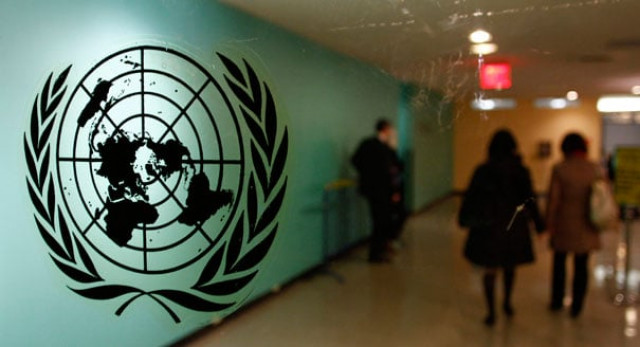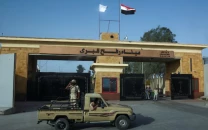UN pushes countries to crack down on terror financing
The council unanimously adopts a French-drafted resolution

United Nation’s Department of Peacekeeping Operations. PHOTO: REUTERS
The council unanimously adopted a French-drafted resolution that was the first stand-alone measure dedicated specifically to countering the financing of terrorism.
The resolution calls on all states to “ensure that their domestic laws and regulations establish serious criminal offenses” to prosecute those who collect funds or provide economic resources to terror organisations or individual terrorists.
The binding resolution was drafted under chapter 7 of the UN Charter, which means it can be enforced with sanctions.
UN counterterror chief Vladimir Voronkov told the council that the measure “comes at a critical time” as recent attacks have shown that terror groups have access to financial flows through legal and illegal means.
The resolution urged countries to establish financial intelligence units to strengthen efforts to track terrorism financing and to share information on their investigations.
Moreover, Financial Action Task Force (FATF) President Marshall Billingslea said less than a fifth of countries were applying laws that prosecute suspected terror financiers as criminals.
The resolution will help the FATF ratchet pressure on more than 50 countries to pass new legislation on countering terror financing.
Groups like Colombia’s FARC rebels, Hezbollah and Al-Qaeda in the Islamic Maghreb (AQIM) tap into a variety of schemes to raise funds from drug trafficking to used car sales to finance attacks, according to the FATF.
Billingslea said the resolution would also contribute to halting ransom payments for kidnappings by terror groups, which have become a major source of funding.
“States must not allow hostage-takers or terrorists to benefit from ransom payments,” Billingslea told the council.
“This is crucial, in particular as kidnapping for ransom has become the major funding source used by the remnants of Da’esh around the world,” he said, referring to the Islamic State (IS) group.
The council has adopted resolutions aimed at choking off revenue to the IS jihadist group and al-Qaeda-linked fighters, including a major text in 2015 that allows for sanctions.
But the latest measure encompasses in one text various initiatives contained in a range of resolutions.
French Foreign Minister Jean-Yves Le Drian stressed that implementation was key to turn the resolution into an effective tool against terror groups.
While the IS and al-Qaeda are losing ground, they are “not disappearing. Quite the contrary, they are adapting,” Le Drian told the council.
Negotiations on the resolution ran into resistance from non-governmental organizations who fear new legislation will create more obstacles for them in their work.



















COMMENTS
Comments are moderated and generally will be posted if they are on-topic and not abusive.
For more information, please see our Comments FAQ